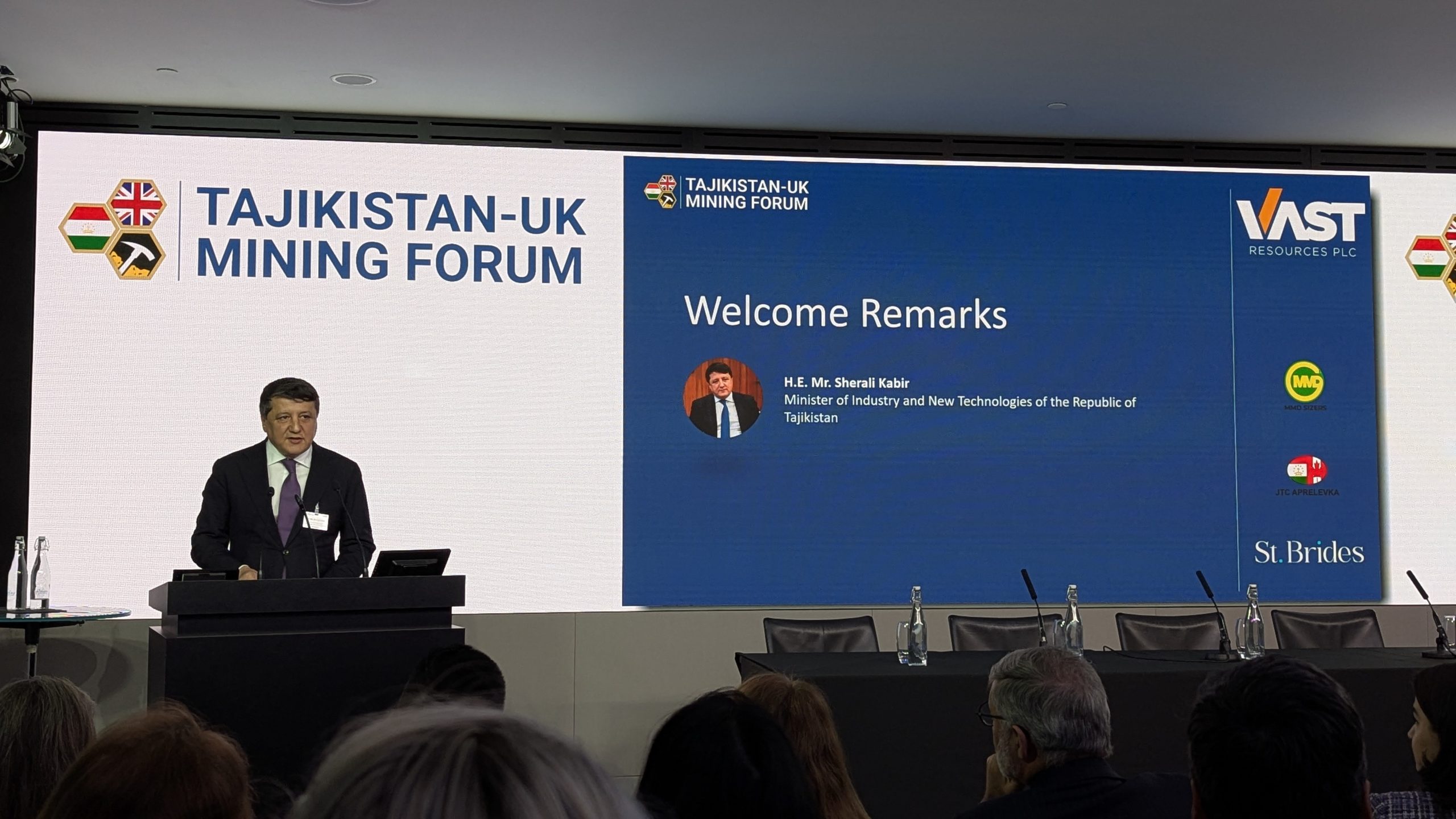His Excellency Sherali Kabir, Minister of Industry and New Technologies of the Republic of Tajikistan, delivered a compelling presentation at the Tajikistan-UK Mining Forum held yesterday at the London Stock Exchange. The high-profile event, which took place on 19 May 2025, highlighted the significant investment opportunities within Tajikistan’s rapidly developing mining sector.
Mineral Wealth and Strategic Resources
In his address, Minister Kabir emphasised Tajikistan’s extensive mineral resources, noting that the country currently extracts over fifty types of raw materials from explored deposits. These include gold, silver, lead, antimony, tungsten, rare and scattered elements, precious and semi-precious stones, and rock salt.
The Minister highlighted that Tajikistan possesses ten different types of strategic metals and minerals that feature on the critical resources lists of China, the European Union, the United States, and the United Kingdom. These include copper, aluminium, lithium, zinc, antimony, chlorite, graphite, nickel, tungsten, and rare earth metals.
“Dependence on critical raw materials may soon replace dependence on oil and gas,” Minister Kabir stated, emphasising the growing global demand for these resources due to international economic competition, industrialisation in developing countries, and ongoing transformations in the global economic order.
Future Market Prospects
Minister Kabir presented a strategic outlook for the critical minerals market, predicting substantial price increases for rare earth metals—potentially up to 1,000 percent by 2035—driven largely by the projected production of 140 million electric vehicles worldwide. Despite the current global market for rare earth metals being valued at only $15 billion annually, Tajikistan is positioning itself to become an integral part of new supply chains.
“We are a country that possesses unique resources, and we believe we can be part of new supply chains. We will certainly use this opportunity,” the Minister asserted.
Investment Framework and Government Support
The Tajik government has established a robust investment framework that guarantees stability for mining projects. Minister Kabir explained that investment agreements include provisions ensuring that legislative changes will not affect approved projects during their operational period, thus mitigating fiscal risks for investors.
“The task of our government is to ensure foreign investors feel comfortable in Tajikistan,” Minister Kabir stated, emphasising the government’s commitment to supporting international partners through active engagement and advocacy.
Value-Added Production Strategy
Looking ahead, Minister Kabir revealed that Tajikistan is moving away from the direct sale of raw mineral concentrates. The government has implemented a five-year programme using tariff regulation to encourage domestic processing of metals, aiming to create higher value-added products within the country.
This strategic shift coincides with Tajikistan’s impressive economic growth, with an overall growth rate of approximately 8.5% and industrial sector expansion of 25% this year, following last year’s 20% increase.
International Cooperation
The forum also saw the signing of a non-binding Memorandum of Understanding between Vast Resources PLC, an AIM-quoted mining company that sponsored the event, and the Ministry of Industry and New Technologies of Tajikistan. The MoU establishes a framework for cooperation in identifying new exploration and exploitation targets for non-ferrous and strategic mineral deposits, as well as developing a “Tajik Mineral Investment Fund”.
The Tajikistan-UK Mining Forum marked an important milestone in strengthening bilateral relations and showcasing the Central Asian nation’s growing significance in the global critical minerals supply chain.

